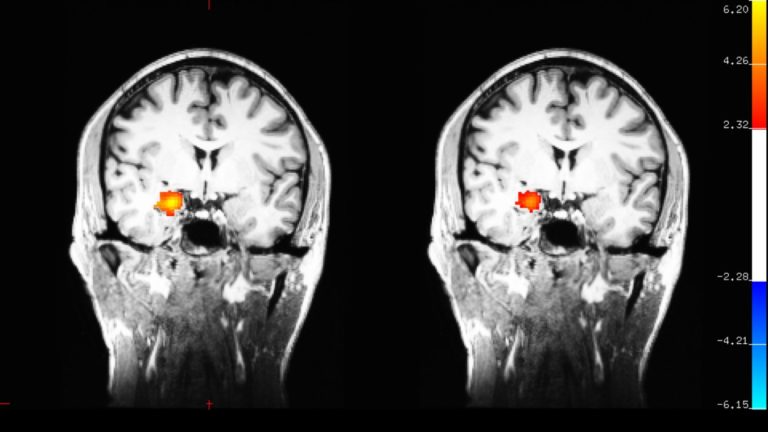“Calmness of mind is one of the beautiful jewels of wisdom.”
James Allen
The Science of Meditation
While meditation has been a mindfulness practice for thousands of years and is known for putting people in a peaceful and relaxing state, there is scientific evidence to suggest that meditation can cause changes to occur in different regions of the brain. For example, Sara Lazar, a Neuroscientist at Massachusetts General Hospital and Harvard Medical School, has tested the benefits of meditation and mindfulness by using brain scans.
Lazar’s research was examined in the online site Ideapod, where she conducted a study that showed an increase in brain volume of meditators who meditated every day for eight weeks.Lazar discovered from her study that there was thickening in four regions of the brain, which included the following:
1. The posterior cingulate, which is involved in mind wandering and self-relevance.
2. The left hippocampus, which assists in learning, cognition, and memory and emotional regulation.
3. The temporo-parietal junction or TPJ, which is associated with perspective-taking, empathy and compassion.
4. The Pons, where a lot of regulatory neurotransmitters are produced.
Lazar research was ground-breaking, even proving that the part of the brain responsible for people experiencing anxiety, fear and stress, was greatly reduced through meditation. With the support of scientific research, people seeking support through guided mediation for self-harm or guided mediation for depression can experience the benefits of mindfulness and a better quality of life.

Benefits of Meditation
According to “How to Cure,” the benefits of meditation include the following:
• Meditation helps manage stress
• Through guided meditation you can find inner peace
• Meditation improves mental function and abilities
• Meditation helps to cultivate self-awareness
• Practicing meditation helps to build compassion and empathy
• Meditation enhances psychological and physical health
• Meditation improves your visualization skill
• Practicing meditation boosts overall cognitive ability
The benefits of meditation are compelling and for people who suffer from anxiety, for example, deciding to pursue guided meditation for anxiety can be an effective way to ascend to a new path in life. The following statistics show why meditation can be a positive force for change:
• The Anxiety and Depression Association of America states that 322 million people worldwide, live with depression.
• According to AnxietyCentre.com, anxiety disorders affect 18.1 percent of adults in the United States (approximately 40 million adults between the ages of 18 and 54). – National Institute of Mental Health (NIMH).
• HuffPost reported that workplace stress is the health epidemic of the 21st century.
Everyday, people are under a great deal of pressure and find it extremely difficult to experience a sense of calm and wellbeing. Meditation offers an amazing outlet for the direction you desire to go.
Sources
1. Guided Meditation for Relaxation: Benefits and Helping …
https://howtocure.com/guided-meditation-for-relaxation
2. Facts & Statistics | Anxiety and Depression Association of …
https://adaa.org/about-adaa/press-room/facts-statistics
3. Anxiety Effects On Society Statistics – anxietycentre.com
https://www.anxietycentre.com/anxiety-statistics-information.shtml
4. Workplace Stress: The Health Epidemic of the 21st Century …
https://www.huffpost.com/entry/workplace-stress-the-heal_b_8923678
5. Harvard Neuroscientist Demonstrates That Meditation and …
https://ideapod.com/harvard-neuroscientist-demonstrates-meditation-mindfulness…
Extensive list of the benefits of meditation
Neuroscience Findings
- Meditation increases gray matter volume in the right orbito-frontal cortex and right hippocampus; these regions are associated with emotional stability.
https://www.ncbi.nlm.nih.gov/pmc/articles/PMC3184843/ - Meditation increases gray matter density in brain regions associated with learning, memory processing, emotion regulation, self-awareness, and perspective-taking.
https://www.sciencedirect.com/science/article/pii/S092549271000288X - Meditation increases gray matter density in brain regions associated with attention, interoception, and sensory processing.
https://www.ncbi.nlm.nih.gov/pmc/articles/PMC1361002/ - Meditation promotes changes in white matter connectivity, potentially reducing age-related degradation.
https://www.ncbi.nlm.nih.gov/pmc/articles/PMC4712309/
Physical Benefits
- Meditation is associated with longevity, and reduced cellular aging.
https://www.ncbi.nlm.nih.gov/pubmed/2693686/
https://www.ncbi.nlm.nih.gov/pubmed/19735238 - Meditation under pain reduces “pain-unpleasantness” by 57% and pain-intensity by 40%. Regular meditation reduces chronic pain by 33-50%.
https://www.ncbi.nlm.nih.gov/pmc/articles/PMC3090218/
https://www.sciencedirect.com/science/article/pii/0163834382900263 - Meditation counteracts symptoms of chronic-insomnia; in older adults meditation improves sleep-quality and reduces daytime fatigue.
https://www.ncbi.nlm.nih.gov/pmc/articles/PMC3060715/
https://academic.oup.com/sleep/article/37/9/1553/2416992
https://jamanetwork.com/journals/jamainternalmedicine/fullarticle/2110998 - Meditation reduces heart rate, blood pressure, and likelihood of heart attacks.
https://www.nature.com/articles/1002275
https://www.tandfonline.com/doi/abs/10.1080/08964280209596049 - Meditation reduces inflammation and inflammatory gene expression.
https://www.sciencedirect.com/science/article/pii/S0306453013004071
Cognitive Benefits
- Meditation shows positive influence in memory, attention, cognitive flexibility, and verbal fluency in elderly patients, suggesting a reduction in age-related cognitive decline.
https://www.ncbi.nlm.nih.gov/pmc/articles/PMC3903052/
https://www.ncbi.nlm.nih.gov/pmc/articles/PMC4001007/ - Meditation significantly improves visuo-spatial processing, working memory, and executive functioning.
http://jtoomim.org/brain-training/Zeidan2010_Mindfulness_Meditation.pdf - Meditation is associated with fewer cognitive errors.
https://www.hindawi.com/journals/ecam/2012/821307/abs/ - Meditation reduces daydreaming and promotes “living in the present.”
http://www.pnas.org/content/108/50/20254.short - Meditation improves attention and self-control, and is theorized to counteract symptoms of ADD and ADHD non-pharmaceutically.
https://www.ncbi.nlm.nih.gov/pubmed/24135553
https://www.ncbi.nlm.nih.gov/pmc/articles/PMC2040428/
http://cochranelibrary-wiley.com/doi/10.1002/14651858.CD006507/full
https://www.sciencedirect.com/science/article/pii/S0301051112001998
Emotional Benefits
- Meditation counteracts symptoms of anxiety disorders, reducing anxiety and stress-response.
https://www.ncbi.nlm.nih.gov/pmc/articles/PMC3772979/
https://www.ncbi.nlm.nih.gov/pubmed/20350028 - Meditation decreases negative emotional experience, emotional reactivity, and negative self-beliefs, while improving emotion-regulation.
https://www.ncbi.nlm.nih.gov/pubmed/20141305 - Meditation shows promise as a therapeutic technique for depression.
http://www.apa.org/monitor/2015/03/cover-mindfulness.aspx

